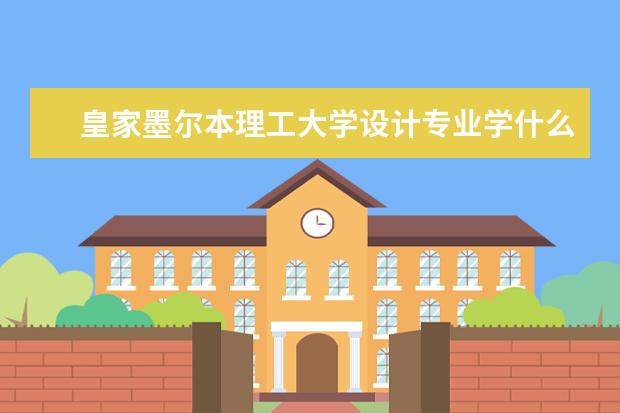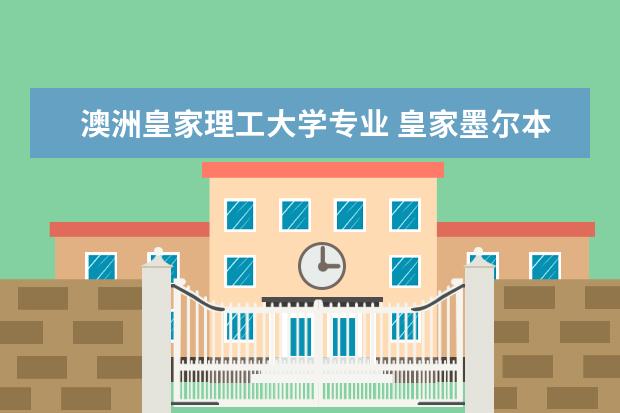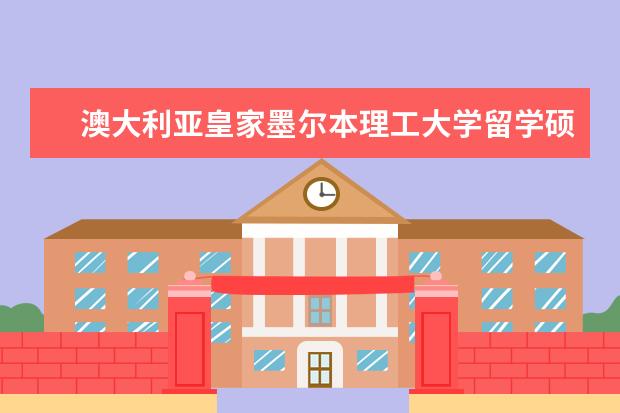今天蜕变学习小编整理了皇家理工大学介绍英语专业相关信息,希望在这方面能够更好的大家。
瑞典留学 皇家理工学院的英语授课课程
一、地理位置
大学位于首都斯德哥尔摩市,是北欧第二大城市,位于梅拉伦湖与波罗的海的交汇处。全市由14个大小岛屿组成,它们象一把晶莹璀璨的珍珠,散落在清澈明净的湖海之间,斯德哥尔摩因而有"北方的威尼斯"之称。
二、英语授课课程
生物物理、电子工程、信息系统工程和管理、环境工程、互联网技术、信息系统、土地管理、原料处理、光子学、量子物理学、房地产管理、分布式的计算机系统软件工程、芯片设计、无线系统、可持续能源工程、材料加工、纳米材料和纳米技术、生产工程和管理、经济革新和发展、土地管理、空间设计、工业管理、可持续技术。
以上是留学英国皇家理工大学英语硕士专业详解介绍,供有意选茄瞎和择英国留学的学生进行参考。
lc是英国什么大学

英国留学专业有哪些

留学英国好就业的专业主要有法律、医药、键团锋音乐、生物科学、解剖科学、生化学、生态学、遗传学、免疫学、微生物学、精神科学、药剂学、植物科学、心理学、病毒学、动物学、资源管理、环境科学、农林学、化学、人工智能、化学工程、土木环境工程、电脑科学等。
留学英国申请材料
1、学历证明:去英国留学需要提交最高学历证明,可以是在读证明或者是毕业证学位证,在读证明需要加盖学校的公章。
2、成绩单:需要提供中英文并且盖章的成绩单,一般中文成绩单可以去教务处开具,如果教务处不支持开具英文成绩单,可以交由制定的、正规的翻译机构翻译并且加盖公章;去英国留学通常要求学生的均分达到80%左右,重点大学的学生要求会稍低一些。
3、语言成绩单:语言成绩单在递交申请的时候不一定会用到,但是去英国留学是必须要满足相关院校及专业语言要求的,一般至少要达到6.0分且单项不低于5.5分;通常去英国留学都是提供雅思考试成绩,有效期为两年,对于需要申请语言课程的同学必须报考UKVI的雅思。
4、2-3封推荐信:推荐信是英国留学申请必备材料之一,大多数学校都要求申或吵请人提供2-3封推荐信。推荐信一般是学术推荐信和实习推荐信,需要从推荐人的角度说明申请人的学术和工作能力,可以找学校的教授或老师撰写,推荐信的格式与一般书信相同,要注意客观、真实的反应出申请人的实际情况;另外在网申时还需要填写推荐人信息相关材料(姓名、职务、职称、联系方式、与被推荐人关系)。
5、个人陈述:个人陈述主要是有关于申请人背景、学术成就、未来研究方向等相关能力与计划的展示载体,撰写个人陈述需要围绕中心主题,展示个人特点,PS的字数通常限定在800-1000字。
6、申请表:一般情况下,每所英国大学官网都会提供申请表下载,申请表需填写的主要内容为申请人的个人信息、申请专业和学科等。
7、其他材料:如果申请人在校期间获得了一些比较大的奖励或相关资格证书,如奖学金证明、国际性的奖状等等,也可以提交;如果是申请艺术设计类院校通常还需要提供作品集。
留学英国如何申请
第一步:申请之前,进入大学官网,选择申请专业,并查看自己是否满足学校以及该课程单独的申请要求,为下一步网申做准备。
第二步:在线填写申请表,包含内容大致有:个人信息、联稿晌系方式、教育背景、工作经历等、推荐人信息、欲申请项目等。
第三步:准备好申请材料,在线扫描上传。
第四步:跟踪申请进程,决定相应行动。
第五步:申请签证,准备留学。
皇家墨尔本理工大学专业设置

1、本科专业设置
皇家墨尔本理工大学辅导
皇家墨尔本理工大学本科课程设置广泛,有会计学、商务信息系统、经济和金融、创业学、信息和知识管理、国际商务、管理、市场营销、物流、金融、工商管理硕士、新闻学、传媒、国际研究、法律、心理学、社会科学、政策和社会服务、教育学、语言学、口译和笔译、艺术管理、公共关系、建筑管理、房地产、环境粗搏和规划、园林建筑、动画和交互媒体、游戏图像设计、纺织品技术、服装设计、工业设计、室内装潢和设计、时尚学、摄影、影视*、音乐产业、美术、科学、数学、化学、物理、体育、生物技术、生物医学工程、运动人体科学、计算机、测绘及空间信息学、地理空间信息、通信工程、电气工程、机械工程、网络工程、环境工程、统计学、计算机系统工程、游戏图形编程、城市和基础设施、航空航天、汽车自动化工程、信息安全与保障、信息技术、食品技术和营养学、健康科学、心理学、助产学、护理学、药剂学、医疗放射学、设计,航空航天,汽车,环境和基础设施建设,服装和纺织,教育,IT,传媒,健康和社区服务,工程与技术,物流,商业信息悄凳困技术等。
2、研究生专业设置
硕士专业有人力资源管理专业、市场营销专业、工程(管理学)专业、商学硕士-战略管理专业、金融专业、职业会计专业、职业会计(cpa)专业、商学硕士-金融专业、供应链和物流管理专业、机器人与机电一体化专业、加工工程专业、启念环境工程专业、机械工程专业、运输系统工程专业、计算机辅助工程和设计专业、应用科学(地理信息)专业、中学教育专业、景观建筑专业、房地产评估专业、建筑专业、城市规划和环境专业、国际城市和环境管理专业等。
其他信息:
ICL是Imperial College London,即英国 帝国理工学院 。
帝国理工学院介绍:帝国理工学院(Imperial College London)是一所主攻理学、工学、医学和商学的研究型大学,全称为帝国科学、技术与医学学院。帝国理工学院是具有创新力的大学之一,尤其以工程专业而著名。帝国理工学院是金三角名校、罗素大学集团、欧洲研究型大学联盟、国际科技大学联盟、全球大学校长论坛参与院校,被誉为“G5超级精英大学”之一。帝国理工学院于1907年建立于英国伦敦,由维多利亚女王和阿尔伯特亲王于1845年建立的皇家科学院和大英帝国研究院、皇家矿业学院、伦敦城市与行会学院合并组成,曾是 伦敦大学 成员之一。
帝国理工学院学校历史:
帝国理工学院1907年获得皇家特许状,由维多利亚女中握王、阿尔伯特亲王1845建立的皇家科学院(Royal College of Science)和大英帝国研究院(The Imperial Institute)、皇家矿业学院(Royal school of mines)、伦敦城市与行会学院(City and Guilds of London Institute)合并组成,形成了主校区南肯星顿校区。
此后,圣玛丽医院医学院(1988)、国家心脏和肺学会(1995)、查令十字和威斯敏斯特学校(1997)先后并入帝国学院,组成医学院,成为帝国理工学院第四个宪制学院。1997年,帝国理工学院医学院兼并了皇家研究生医学院、皇家妇产科学会。
进入二十一世纪以来,帝国理工学院于2000年兼并了肯尼迪风湿病学学会和崴学院(Wye College)。2005年12月6日,帝国理工学院宣布将斥资10亿英镑,把崴校区建成一个能容纳12
500人的世界级的生物燃料研究中心。2002年,维持了几十年的宪制学院系统被废除,采用了新的院系制度。
在2005年底,学院宣布将物理科学院(Faculty of Physical Sciences)和生命科学院(Faculty of Life Sciences)合并为自然科学院(Faculty of Natural Sciences)。2005年12月9日,学院宣布计划退出联邦制的伦敦大学。
在2007年,学院在成立100周年之际正式脱离伦敦大学联盟,成为一所独立的大学。
在2013年,帝国理工学院于与 牛津大学 , 剑桥大学 , 南安普顿大学 和 伦敦大学学院 共同发起并创立了科学与工程南联盟(Science and Engineering South Consortium), 伦敦国王学院 随后也加入了该联盟。这是世界最领先的科学和工程研究中心之一。
在2020年6月,学校校训“Scientia imperii decus et tutamen(科学是帝国的荣耀和庇护)”停止使用。
帝国理工学院院系设置:
帝国理工学院下设工程学院、自然科学学院、医学院、商学院等院系。
1、工程学院下属10个院系:航空航天系、生物工程系、土木与环境工程系、化学工程系、计算机系*虚庆、Dyson设计工程学院、地球科学和工程学系、电气与电子工程系、材料科学和工程系、机械工程系。
2、医学院下属8个院系:临床科学学会、医学系、国家心脏和肺学会、公共卫生系(学院)、外科与肿瘤学系、李光前医学院伦敦办事处、帝国学院学术健康科研中心、帝国学院国家卫生服务信托。
3、自然科学学院下属誉哪5个院系:数学系、物理系、化学系、生命科学系、环境政策中心。
4、商学院下属3个院系:金融系、创新与创业(企业家)系、(工商)管理系。
5、其他学术机构:数据科学学会、未来能源实验室、全球健康创新学会、Grantham学会气候变化与环境研究、安全(系统)科学和技术学会。
6、职业发展学校:学术英语中心、业余课程(Co-Curricular)中心、教育发展中心。
材料补充:
帝国理工学院的下设专业主要有文学专业、农学专业、动物学专业、理学专业、统计学专业、管理学专业、工学专业、医学专业、科学计算、商业计算、数学、应用数学、地质学、化学、分子物理、地球物理学、地震学、应用物理学、地球科学、物理学、电子工程、材料科学、化学工程、核能工程、土木工程、电气工程、电机一体化、航空工程、机械工程、石油工程与技术、工程学。
皇家墨尔本理工大学有哪些专业?
澳大利亚皇家墨尔本理工大学优势专业中英文介绍 - ...
工程Engineering
Bachelor of Engineering (Computer and Network Engineering)
工程硕士
Computer system engineers design and apply computer systems to provide efficient engineering solutions in almost every sectors of our society. Their work includes designing new products and systems, improving the operation of existing systems, integrating various sub systems and providing updated technical support.
Network engineers design, implement and maintain digital communication networks and computer networks, which are heavily used in our daily life.
Computer engineering in this program focuses on embedded systems design, computational intelligence, industrial information processing, intelligent robotics and multimedia systems which includes speech, image and video signal processing. These fields are driving rapid changes in industry and society, creating new opportunities for technology evolution and leading to the creation of new businesses with both industrial and domestic applications. Network Engineering in this program focuses on the advanced aspects of network design, optimisation, maintenance and protection. The program offers both fundamental knowledge and in-depth technology in network engineering. Internet telephony (i.e. Voice over IP), network performance and network security are some of the specialised areas in the program. Studying in this program also equips students with suitable knowledge for external examinations such as the CISCO CCNA and Microsoft MCSE.
Computer and network engineers play important roles in our society. They can contribute to the design and operation of international telecommunication networks and even space exploration. Their works directly or indirectly improve the quality of life, health and well being of individuals and communities, the productivity of industry, the competitiveness of all kinds of business and the effectiveness of government services.
In years one and two, you will learn the fundamental principles and practices in computer and network engineering, and the mathematics and physics that make up the essential engineering tools. You will also develop essential professional skills such as communication, teamwork, and leadership skills.
In years three and four, the focus is on making you industry ready. You will deepen the technical knowledge and skills in your chosen specialisation, and exercise your design, teamwork, leadership, management and communication skills through individual and team-based projects that closely resemble the work of practising engineers.
Bachelor of Engineering (Electrical Engineering)
工程硕士
Capacity to imagine and a desire to find creative solutions to problems are key to a career in engineering.
Electrical engineers devise engineering solutions for society. Engineers work with professionals in manufacturing, automation, agriculture, transport, resources and energy management, education, environmental monitoring, renewable energy, power generation and distribution, retail and industrial automation, and transportation.
You will learn through a wide variety of modes including lectures, tutorials, and especially laboratories. You will also need to spend a significant amount of your own time on self-directed learning.
In years one and two, you will learn the fundamental principles and practices in electrical engineering, and the mathematics and physics that make up the essential engineering tools. You will also develop essential professional skills including communication, teamwork, and leadership skills.
In years three and four, the focus is on making you industry ready. You will deepen the technical knowledge and skills in your chosen specialisation, and exercise your design, teamwork, leadership, management and communication skills through individual and team-based projects that closely resemble the work of practising engineers.
Bachelor of Engineering (Electronic and Communication Engineering)
工程硕士
入学要求: 雅思6.5, 单科不低于6.0; foundation 课程毕业
Electronic engineers design and apply electronic devices and systems to produce a wide range of goods and services for multiple users including from individuals and households to big industries, businesses and organisations.
Communication engineers design and apply electronic, optical and electromagnetic devices and systems to collect, distribute or exchange information between people or machines, over distances up to many thousands of kilometres across the world or in space. The information may take various forms such as voice, data, picture, audio, video or a combination thereof.
Electronic and communication products and services are a large part of modern living, from mobile phones and computers for individuals, broadband services and high definition TV for households and businesses, satellite navigation and sophisticated safety and control systems for cars, ships and planes, high resolution body scanners for hospitals, greener and cleaner technologies for energy production, satellite phones for remote communities and emergency services, right up to the tracking, telemetry and command (TT&C) and communication systems in satellites and space exploration capsules.
Electronic and communication engineers are the people who design, produce and maintain devices, systems and services that improve the quality of life, health and well being of individuals and communities, the productivity of industry (e.g. agriculture, resources, energy, manufacturing), the competitiveness of all kinds of business, and the effectiveness of government services (e.g. health, education, transport, defence and emergency services).
You will learn through a wide variety of modes including lectures, tutorials, and laboratories. You will also need to spend a significant amount of your own time on self-directed learning.
In years one and two, you will learn the fundamental principles and practices in electronic and communication engineering, and the mathematics and physics that make up the essential engineering tools. You will also develop essential professional skills in communication, teamwork, and leadership.
In years three and four, the focus will be on making you industry ready. You will deepen your technical knowledge and skills in your chosen specialisation, and exercise your design, teamwork, leadership, management and communication skills through individual and team-based projects that closely resemble the work of practising engineers.
Master of Engineering (International Automotive Engineering)
工程硕士
入学要求: 雅思6.5, 单科不低于6.0;
Automotive engineering is the application of principles drawn from the sciences in order to develop economical and sustainable automotive designs or to solve automotive problems. Encompassing complete car design, automotive engineering is global in scope and increasingly environmental in outlook. The industry generates and applies new technologies (e.g. hybrid power trains and fuel cells) for the betterment of society.
The degree has resulted from demands from the industry and students. It builds on a core program of mechanical engineering and offers specialist courses that enable a graduate to be immediately industry ready. Reflecting the increasing interaction between industry and higher education, you may also have the opportunity to take a one-year paid industrial placement with associated academic credit.
Automotive engineering courses include:
Vehicle power systems
An introduction to the development, design, specification, and operation of internal combustion engines for mobile applications with a focus on traditional spark-ignited and diesel engines. It also covers alternative power plants and fuels.
Motor vehicle design and vehicle manufacturing systems
Tackle and solve advanced engineering problems, particularly in the structural design and manufacturing of vehicles and automotive components. The course represents the basis for the *ysis and solution of problems related to modern automotive design and manufacturing and advanced computer modelling techniques of real engineering problems
Vehicle handling and control
Covers performance prediction relatively early in the design process and identifies the conflicts in designing for optimal performance in different modes.
Vehicle aerodynamics
Emphasis is placed on solving aerodynamic problems using a balance of computation and experimental techniques. The growing influence of styling on body shape is approached from both an artistic and a scientific viewpoint.
Vehicle noise and vibration
Understand the nature of sound, effectively document human non-linear response to sound, understand the relationship between noise and vibration, and appreciate the difference between structure-borne and air-borne sources.
以上就是蜕变学习小编给大家带来的皇家理工大学介绍英语专业全部内容,希望对大家有所帮助!
免责声明:文章内容来自网络,如有侵权请及时联系删除。
本文标题:皇家理工大学介绍英语专业 皇家墨尔本理工大学专业设置
wap地址: https://m.tbqqq.com/zixun/466118.html



















